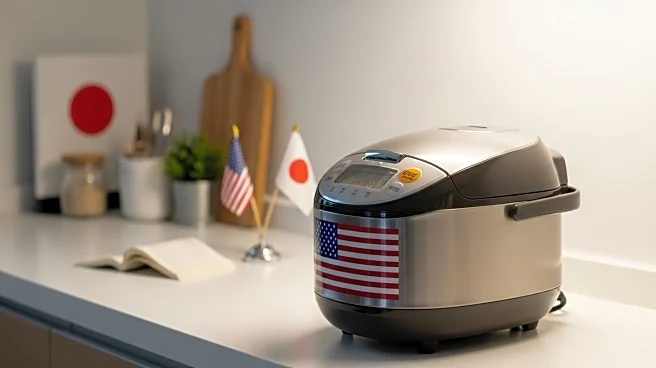What's Happening?
Recent trade negotiations between the United States and Japan have encountered obstacles due to a demand from President Trump for Japan to increase its purchase of American rice. This request has led to Japan's top tariff negotiator canceling a planned trip to the U.S., citing unresolved administrative issues. The demand contradicts a previous agreement that Japan would not need to lower its tariffs on agricultural imports. The July agreement had included a commitment from Japan to boost U.S. rice purchases by 75%, but Japanese officials have expressed concerns over this demand, viewing it as interference in domestic affairs. The negotiations are part of a broader $550 billion package of U.S.-bound investment through government-backed loans and guarantees, which remains under discussion.
Why It's Important?
The demand for increased rice purchases is significant as it highlights the complexities and challenges in international trade negotiations, particularly in agriculture. For the U.S., increased rice exports could benefit American farmers and the agricultural sector, potentially boosting the economy. However, for Japan, this demand raises concerns about domestic agricultural policies and the impact on local farmers. The situation underscores the delicate balance countries must maintain between international trade agreements and domestic interests. The stalled negotiations could affect broader economic relations between the two nations, impacting industries reliant on stable trade agreements.
What's Next?
The next steps involve further discussions to resolve the administrative issues and finalize the trade agreement. Japanese officials are seeking amendments to the presidential executive order to remove overlapping tariffs on Japanese goods. Opposition leaders in Japan are calling for transparency and legislative approval for any new agricultural concessions. The outcome of these negotiations will likely influence future trade policies and agreements between the U.S. and Japan, with potential implications for other sectors such as the auto industry.
Beyond the Headlines
The demand for increased rice purchases may have deeper implications for U.S.-Japan relations, potentially affecting diplomatic ties and cooperation in other areas. It also raises questions about the influence of executive orders on international trade and the need for formal agreements to ensure clarity and mutual understanding. The situation could lead to discussions on the ethical considerations of imposing trade demands that affect domestic policies in partner countries.










